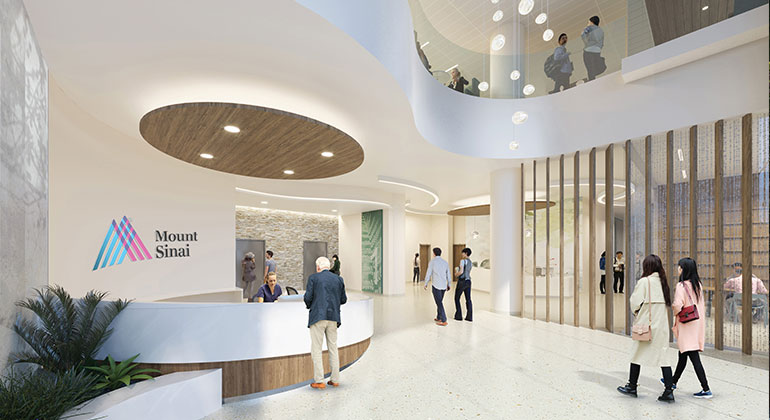Researchers Create a Potential Therapy for Deadly Breast Cancer That Has Few Treatment Options
Mount Sinai researchers have designed an innovative experimental therapy that may be able to stop the growth of triple-negative breast cancer, the deadliest type of breast cancer, which has few effective treatment options, according to a study published in Nature Chemical Biology in December.
The therapy is known is MS1943. In a cancer cell line and mouse models, it degraded a protein called EZH2 that drives the growth of triple-negative breast cancer.
Research teams led by Jian Jin, PhD, Director of the Mount Sinai Center for Therapeutics Discovery, and Ramon Parsons, MD, PhD, Director of The Tisch Cancer Institute at Mount Sinai, developed MS1943 as a first-in-class small-molecule agent that selectively degrades EZH2. They also showed that agents that inhibit the enzymatic activity of EZH2 but do not degrade EZH2 did not work in triple-negative breast cancer.
MS1943 effectively reduced EZH2 protein levels in a variety of cancer cell lines, including a triple-negative breast cancer cell line, leading to the death of these triple-negative breast cancer cells.
“Our findings suggest that EZH2 selective degraders such as MS1943 may provide an emerging therapeutic approach for the treatment of triple-negative breast cancer,” said Dr. Jin, who is also Co-leader of the Cancer Clinical Investigation Program at The Tisch Cancer Institute, Mount Sinai Professor in Therapeutics Discovery, and Professor of Pharmacological Sciences, and Oncological Sciences, at the Icahn School of Medicine at Mount Sinai. “The EZH2 selective degrader reported in this study is also an invaluable tool to test therapeutic hypotheses in other cancers.”
This research was supported in part by the grants R01CA230854 and R01CA218600 from the U.S. National Institutes of Health.
About the Mount Sinai Health System
Mount Sinai Health System is one of the largest academic medical systems in the New York metro area, with more than 43,000 employees working across eight hospitals, over 400 outpatient practices, nearly 300 labs, a school of nursing, and a leading school of medicine and graduate education. Mount Sinai advances health for all people, everywhere, by taking on the most complex health care challenges of our time — discovering and applying new scientific learning and knowledge; developing safer, more effective treatments; educating the next generation of medical leaders and innovators; and supporting local communities by delivering high-quality care to all who need it.
Through the integration of its hospitals, labs, and schools, Mount Sinai offers comprehensive health care solutions from birth through geriatrics, leveraging innovative approaches such as artificial intelligence and informatics while keeping patients’ medical and emotional needs at the center of all treatment. The Health System includes approximately 7,300 primary and specialty care physicians; 13 joint-venture outpatient surgery centers throughout the five boroughs of New York City, Westchester, Long Island, and Florida; and more than 30 affiliated community health centers. We are consistently ranked by U.S. News & World Report's Best Hospitals, receiving high "Honor Roll" status, and are highly ranked: No. 1 in Geriatrics and top 20 in Cardiology/Heart Surgery, Diabetes/Endocrinology, Gastroenterology/GI Surgery, Neurology/Neurosurgery, Orthopedics, Pulmonology/Lung Surgery, Rehabilitation, and Urology. New York Eye and Ear Infirmary of Mount Sinai is ranked No. 12 in Ophthalmology. U.S. News & World Report’s “Best Children’s Hospitals” ranks Mount Sinai Kravis Children's Hospital among the country’s best in several pediatric specialties.
For more information, visit https://www.mountsinai.org or find Mount Sinai on Facebook, Twitter and YouTube.

Study Identifies New Gene That Drives Colon Cancer
Oct 14, 2022 View All Press ReleasesUnprecedented Therapy Found Effective for Blood Cancer Patients With No Treatment Options
Aug 22, 2019 View All Press Releases
